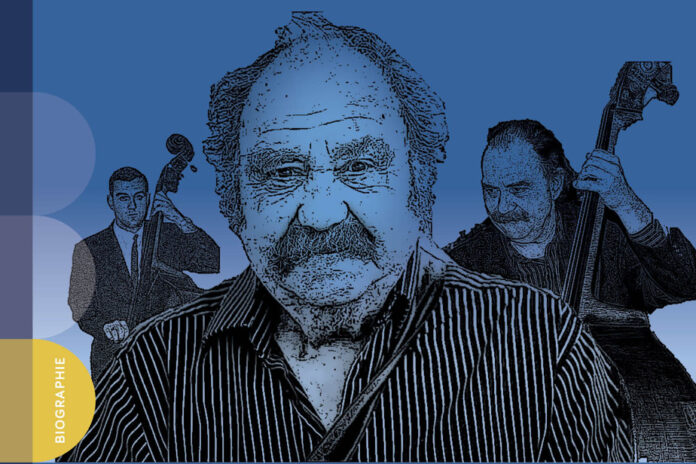“It’s about refusing, together, this supposedly reasonable and pragmatic idea according to which improving our world is absolutely impossible. To refuse to believe that what is is immutable,” writes Mélikah Abdelmoumen in Ordinary Commitments. As those who have read her moving story Twelve Years in France (2008) know, in which it was notably about the help she long offered to Roma families in Lyon, the author of Baldwin, Styron and I am not the type to be stopped by the supposed pragmatism of the Aquoibonists. In this brief but rich essay she pays homage to the women of her lineage, these anonymous people whose commitment is generally described as ordinary, even if there is never anything ordinary in this desire to make life sweeter. life of his neighbor.
Despite “all the reasons in the world that he would have/to stop/to give up”, as he wrote in his “Tango de Montréal”, Gérald Godin never stopped fighting for a world to come freed from the weight of injustice. A ubiquitous character in the cultural and political worlds of Quebec, the deputy-poet finally finds in Jonathan Livernois a biographer courageous enough to take on the gigantic task that the telling of a life which, even if it was interrupted, undoubtedly represented too early (55 years), seems to have contained several. To accomplish this colossal task, the professor from Laval University spoke with the man’s relatives, in addition to having been able to draw on his family archives and other unpublished documents.
“Municipalities could become drivers for in-depth changes in areas as important as the climate crisis, access to culture, the integration of immigrants and the well-being of families,” Maxime Pedneaud-Jobin firmly believes. The problem, according to the former mayor of Gatineau and contributor to La Presse? Quebec cities are subject to a legal and fiscal framework worthy of a straitjacket, imposing too many constraints on their field of competence. A “hard-hitting” essay, we warn, driven by the hope of a reform that would allow municipal governments to speak on an equal footing with their provincial and federal counterparts.
In 2014, Florence-Agathe Dubé-Moreau’s life partner, a certain Laurent Duvernay-Tardif, was drafted by the Kansas City Chiefs. What the independent curator of contemporary art will discover, by going behind the scenes of this singular microsome, will profoundly change her “perspective on the impact of sport in the fight for gender equality”. In this “cultural and feminist chronicle on the professional sports industry”, the committed intellectual undermines the myths that stick to women evolving in an environment where, although they are less and less reduced to the strict role of spectators swooning or cheerleading, many stereotypes still die hard.
Sprawling, insightful, irreducible; Nicole Brossard’s work is among the most important in Quebec literature, prefiguring a formal hybridity that is flourishing more than ever among Generation Y and Z authors. Although her books rarely correspond to a single literary genre – essay always being a bit of a poem, the novel a bit of an essay, and so on – it is Nicole Brossard the essayist who celebrates this “sum which is both learned and delightful”, bringing together texts published by different brands over the years. Last 50 years. Translation, lesbianism, feminism, visual arts and cinema; this anthology developed by Chloé Savoie-Bernard and Karim Larose comes at the right time to mark the 80th birthday (November 27) of an architect of contemporary intellectual life.
What is the difference between a good musician and a very good musician? we asked jazzman Michel Donato in July 2022, as he prepared to celebrate his 80th birthday. “It’s like sport,” he replied. “There are hockey players and there is Maurice Richard. A very good musician, everything he does looks easy. When Lemieux outwits three guys, you feel like you could do it too. » The Maurice Richard of the double bass, who shared the stage with Bill Evans, Dizzy Gillespie and Oscar Peterson, in addition to accompanying Ginette Reno and Félix Leclerc in the studio, spoke for several years to the writer, host and jazzophile Stanley Péan, who signed this biography which is said to be worthy of a true novel.















